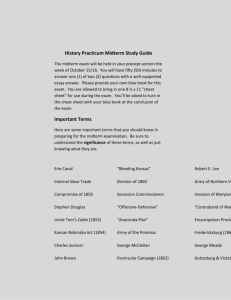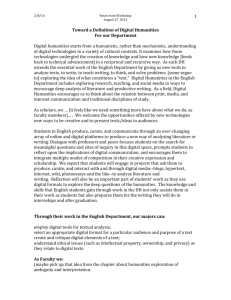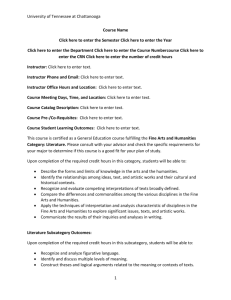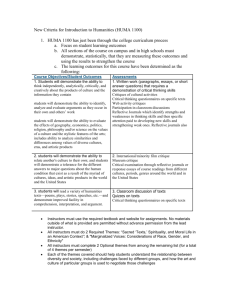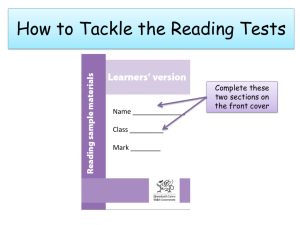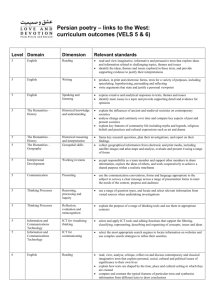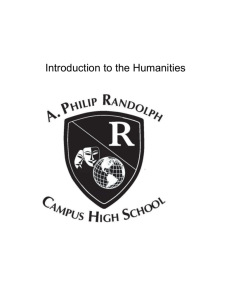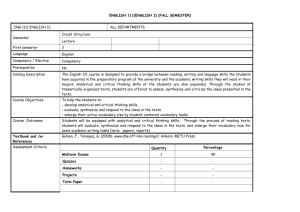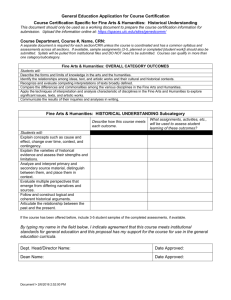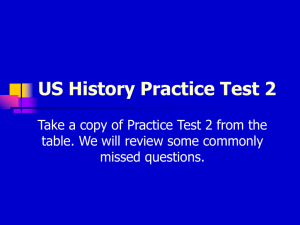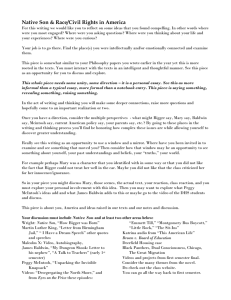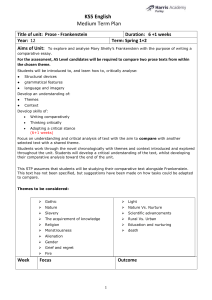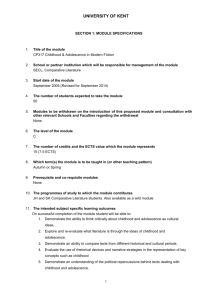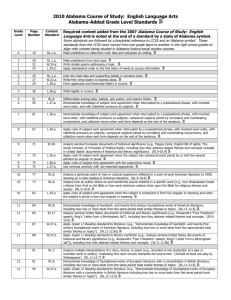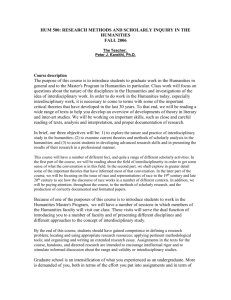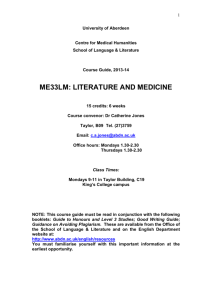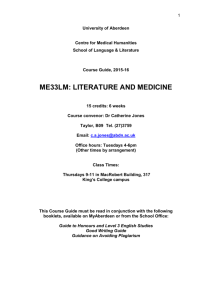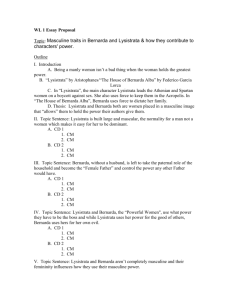Humanities 1A Fall 2015 Information of the Humanities 1A Final
advertisement
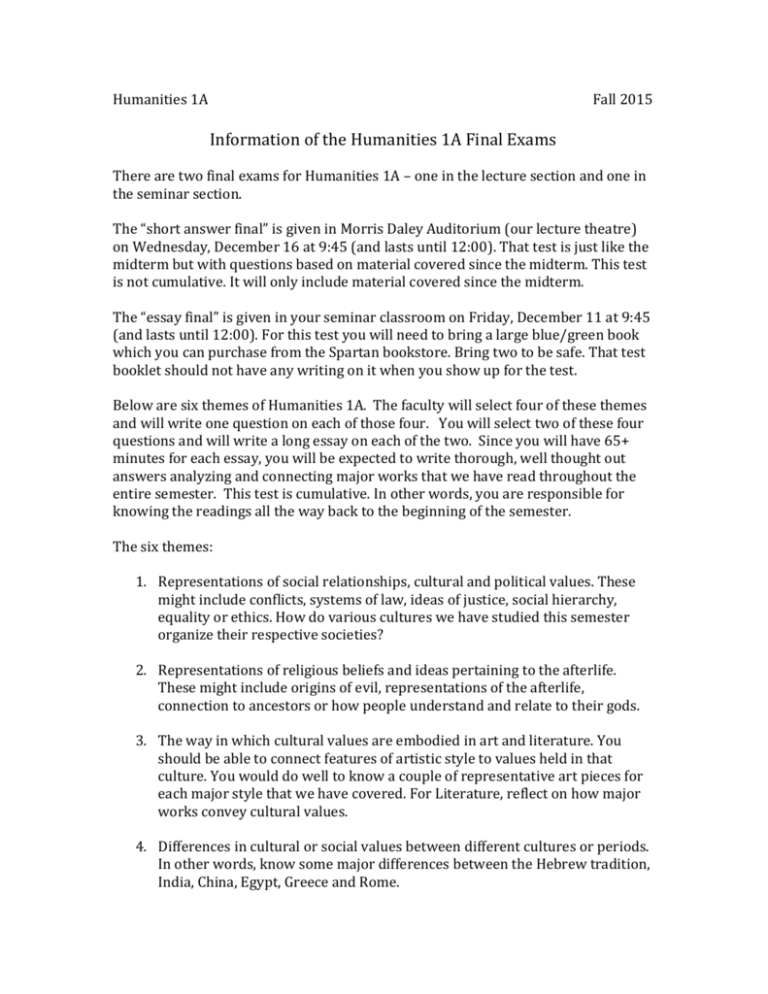
Humanities 1A Fall 2015 Information of the Humanities 1A Final Exams There are two final exams for Humanities 1A – one in the lecture section and one in the seminar section. The “short answer final” is given in Morris Daley Auditorium (our lecture theatre) on Wednesday, December 16 at 9:45 (and lasts until 12:00). That test is just like the midterm but with questions based on material covered since the midterm. This test is not cumulative. It will only include material covered since the midterm. The “essay final” is given in your seminar classroom on Friday, December 11 at 9:45 (and lasts until 12:00). For this test you will need to bring a large blue/green book which you can purchase from the Spartan bookstore. Bring two to be safe. That test booklet should not have any writing on it when you show up for the test. Below are six themes of Humanities 1A. The faculty will select four of these themes and will write one question on each of those four. You will select two of these four questions and will write a long essay on each of the two. Since you will have 65+ minutes for each essay, you will be expected to write thorough, well thought out answers analyzing and connecting major works that we have read throughout the entire semester. This test is cumulative. In other words, you are responsible for knowing the readings all the way back to the beginning of the semester. The six themes: 1. Representations of social relationships, cultural and political values. These might include conflicts, systems of law, ideas of justice, social hierarchy, equality or ethics. How do various cultures we have studied this semester organize their respective societies? 2. Representations of religious beliefs and ideas pertaining to the afterlife. These might include origins of evil, representations of the afterlife, connection to ancestors or how people understand and relate to their gods. 3. The way in which cultural values are embodied in art and literature. You should be able to connect features of artistic style to values held in that culture. You would do well to know a couple of representative art pieces for each major style that we have covered. For Literature, reflect on how major works convey cultural values. 4. Differences in cultural or social values between different cultures or periods. In other words, know some major differences between the Hebrew tradition, India, China, Egypt, Greece and Rome. 5. The way in which human excellence is explored in major works of literature and philosophy. How do models of good men and women differ? What philosophical justifications are offered for claims about what is good? Think about this not just in the Western philosophical tradition but also about the ways in which western theories differ from those of China and India. 6. The way in which various writers have characterized the good society. What principles or institutions provide the best foundation for a flourishing society? The specific questions will list five major works that the faculty believe are pertinent to the question, and you will be asked to choose four to explore in some depth. (You might have more personal choice when the question concerns works of art.) So to prepare for this test, you will want to review the major works that we have covered. Recall key figures, themes, arguments and events in these texts. This includes literature, philosophy, and art works. For instance, one question based on theme 1 could (but will not) be: Compare the way that different leaders—whether fictional or real—have helped to organize their societies. Discuss four of these five examples in depth to illustrate your comparison: Gilgamesh from the epic of his name, King David in the Hebrew Bible, Pericles, the character Lysistrata in Aristophanes’ play of that name, and Julius Caesar of Rome. Another way of thinking about this is that you should be prepared to write thoughtfully for about 15 minutes on how any given text relates to a question. No two texts will be used twice on the exam—so you need to be prepared to write indepth responses using a total of eight different texts. You won’t be able to pick exactly which eight texts, so your best strategy is to broadly prepare. Works you might be called upon to analyze: Gilgamesh The code of Hammurabi Genesis, Exodus, Samuel, Job, Psalms, Proverbs The Book of the Dead The Odyssey Bhagavad Gita The Jataka Tales Agamemnon Antigone Medea Thucydides Lysistrata Apology Greek and Roman poetry Republic Nicomachean Ethics Politics (Aristotle) Confucius’ Analects Daodejing Zhuangzi Aeneid Epictetus, Epicurus, Sextus Empiricus Metamorphosis Also know major artworks from Egypt, Mycenaean and Minoan art, Archaic, Classical and Hellenistic Greek art, Roman art, and early Chinese art


